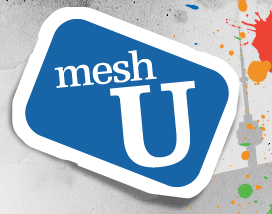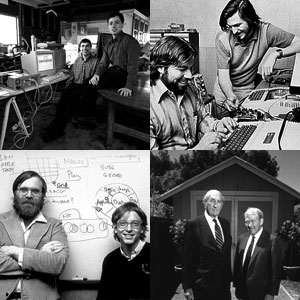“With the proper level of ambition, talent, and opportunity, even a small, islolated company can turn the world into its market” – Michael Cusumano, Dealing with the Venture Capital Crisis
I’m reading Michael Cusumano’s Dealing with the Venture Capital Crisis in the October 2009 issue of Communications of the ACM, I’m struck by the idea that our geographical proximity to the US, advanced economy, good universities and strong intellectual property rights might be the spawning ground for new ventures, sources of wealth, social welfare and employment. The article proposed 4 markets that meet these requirements including:
- Israel
Estimated 2009 Population: 7.4 million
2008 Venture: 483 investments totaling US$2.08B, $780M from local VCs (Cdn$2.54B/Cdn$904.84M) (IVA)
Investment-to-GDP: 0.0125/0.0045
- Finland
Estimated 2009 Population: 5.3 million
2008 Venture: 406 investments totaling 360M euros (Cdn$620.55M) (FVCA)
Investment-to-GDP: 0.0032
- Ireland
Estimated 2009 Population: 4.9 million
2008 Venture: 160 investments totaling 243M euros (Cdn$418.87M) (IVCA)
Investment-to-GDP: 0.0022
- New Zealand
Estimated 2009 Population: 4.3 million
2008 Venture: 52 investments totaling NZ$66.1M (Cdn$46.81M) (NZVCA)
Investment-to-GDP: 0.0004
Well these are great numbers, how does this compare to Canada?
- Canada
Estimated 2009 Population: 33.8 million
2008 Venture: 371 investments totaling Cdn$1.3B (CVCA)
Investment-to-GDP: 0.001
When compared to the US and Israel, Canada looks like a poor third cousin. What is the appropriate measure here? Investment as a percentage of GDP? Well we fall somewhere between New Zealand and Ireland. Maybe things aren’t as bad as we’d like to think. We have more venture money than New Zealand. We’re closer to a larger market. Maybe we should start to look at the positive factors and exploit the constraints to build opportunities.
- Advanced economies
- Sophisticated customers
- Good universities
- Strong intellectual property rights
- Favorable tax laws
- Vibrant entrepreneurial cultures
What’s an entrepreneur to do?
In my opinion, there are only 2 items on the above list that are directly impacted and influenced by entrepreneurs: Sophisticated customers; and Vibrant entrepreneurial cultures. Sure, the net result of a more positive entrepreneurial environment is a advanced economy that produces good universities. We can lobby politicians for strong intellectual property rights (and consumer freedoms) and favorable tax laws. But there are advocacy groups like the National Angel Capital Organization and the Canadian Venture Capital Association that more directly benefit and are better funded to act on the behalf of entrepreneurial financing. This is not some that necessarily deserve any additional attention than you currently dedicate to the political process. I’m arguing the entrepreneurs should build companies and leave this to the pundits, advocates, policy wonks and politicians.
Sophisticated customers
For entrepreneurs,we need to work on helping develop sophisticated customers. Often these customers are located near where the entrepreneur is building their product or service offering. However, this is not a requirement. Entrepreneur should look for sophisticated customers around the globe. Including customers in your product design and development process is key to creating products that meet customer needs and to develop more sophisticated customers. Steve Blank and Eric Reis have proposed the Customer Development Manifesto and Lean Startup as ways for founders to engage customers in the earliest work. All startups should read these posts.
Vibrant entrepreneurial cultures
Isn’t this what we’re trying to do? Read our thoughts on:
Part of the reason that we are luck enough to have Dave McClure in Toronto (and he had a great time). First Round Capital had office hours with Chris Fralic and Phin Barnes. We continue to see folks from Atlas Ventures, General Catalyst, and Microsoft (Don Dodge presented at StartupEmpire and will be presenting at CIX). This is a result of your participation. Canadian cities have a lot of buzz and attention based on the things that are going on.
It’s cumulative!
It is the force of a thousands of butterflies flapping their wings. All of the blogging, twittering, attending conferences, showing up to events, participating online. It’s about the DemoCamps, Launch Parties, StartupDrinks, Social Media Breakfasts, Third Tuesdays, Founders & Funders, NEWTECH, SproutUps, Meshes, and everything else. It is a cumulative effect. It doesn’t take a lot of extra effort, but it adds up to the rest of the world paying attention to the noise.
We have great spokespersons like Saul Colt, Mathew Ingram, Mike Lee, Michael McDerment, Leila Boujnane, Brian Sharwood, Sarah Prevette, Pema Hagen, Bryan Watson, Anand Agarawala and others running around the world telling their stories of being a startup and the reasons they are doing it in Toronto. In Vancouver there’s Robert Scales, Kris Krug, Boris Mann, BootupLabs, Boris Wertz, Andre Charland, amd others. In Montreal it’s Austin Hill, Heri Rakotomalala, John Stokes, George Favvas, Ben Yoskovitz, Fred Ngo, Pinny Gniwisch, Ray Luk and others. Let’s not forget Social Media Breakfast, StartupOttawa, Scott Lake, Allan Isfan, Jacqui Murphy, and everyone that I’ve missed (it’s on purpose, because I don’t like you any more and I hate your startups).
But it is up to us to make noise. It’s up to us to build successful companies. It’s up to us to make Canada a better place for startups. No one is going to walk in and make it easier. We all have to participate and build a vibrant entrepreneurial culture. We need to talk about entrepreneurship as a career path. We need to talk to politicians about policy decisions.
So the first rule of being an entrepreneur is to reach out. Invite a friend. Make a connection. Tell a customer. Most of all, do the things that make the ecosystem better for you.


 The hours at a startup might be long and the pay might just cover a six inch sub, but there is nothing more rewarding than being part of a team out to change the world.
The hours at a startup might be long and the pay might just cover a six inch sub, but there is nothing more rewarding than being part of a team out to change the world. It’s hard not to like Pema and Noah. The two founders of
It’s hard not to like Pema and Noah. The two founders of